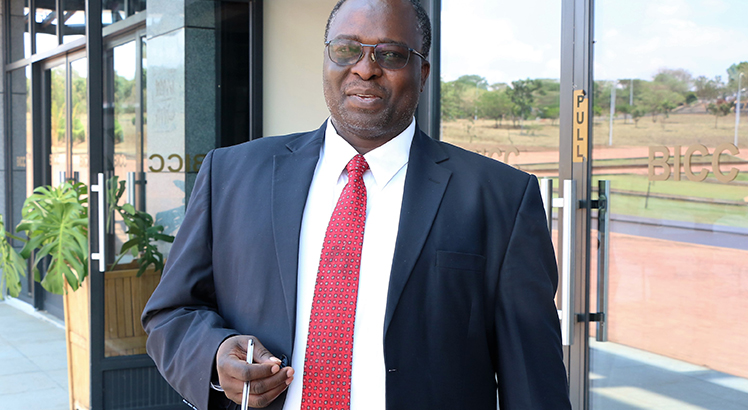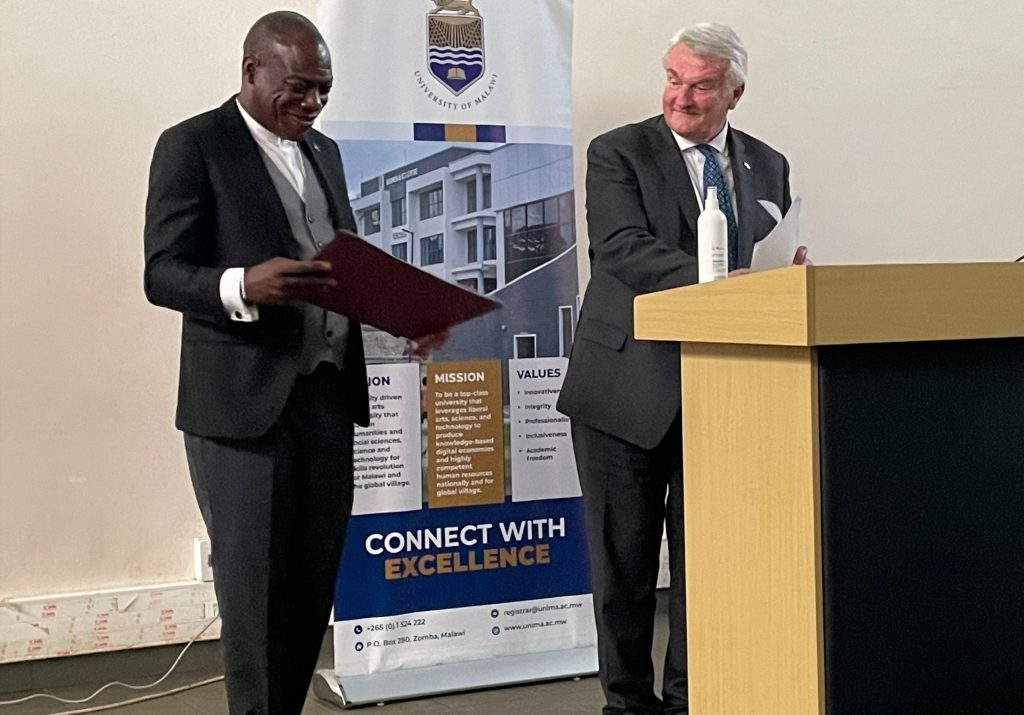Government has no clue as to when Malawian domestic workers stuck in Oman will return home despite Treasury releasing K400 million for their repatriation.
Secretary to the Treasury Macdonald Mafuta-Mwale confirmed in an interview last week that he released the money four months ago to kick-start the repatriation.
Mwale: Yes, resources were released
But the line ministries handling the matter—Foreign Affairs and Labour—are dodging questions on timelines and what the money has achieved.
Said Mafuta-Mwale: “Yes, resources were released from the unforeseen budget after Cabinet approval. But for details call the relevant ministries.”
There are over 370 Malawian female domestic workers trapped in Oman that have been sounding SOS for working in inhumane conditions and wanting to return home, but their masters have been blocking their plans.
In February this year, Ministry of Foreign Affairs announced it had secured 50 air tickets to start the repatriation exercise following negotiations between the two countries. But no one has been repatriated under that arrangement.
From October 16 to 21 2022, an inter-ministerial delegation from Malawi was in Oman to request for the immediate discharge and subsequent repatriation of the citizens, but to no avail, according to sources privy to the issue.
While in Oman, the Malawian delegation also met some of the domestic workers and communicated with others by phone.
The delegation also engaged the Oman authorities on modalities of acquiring some religious shelter spaces to accommodate them while waiting for their repatriation. This is yet to be done, according to the source.
Since then some domestic workers have been fighting individually for their liberation.
One such person is Grace Chiphukusi, a 25-year-old resident of Likuni in Lilongwe, who was lucky to escape the slavery in Oman. She returned home on December 18 2022, six months after working for an Arabian family.
It all started when her former schoolmate approached her with what sounded like a mouth-watering proposal for a job opportunity in Dubai, one of the world’s most famed luxury-shopping cities and a monthly salary of K500 000.
She did not hesitate and soon started planning for what she thought would be a defining moment in her life.
But her story changed, first when on July 6 2022, she arrived in Oman, not Dubai. That is when she realised that she and the other girls, who had flown with her had been trafficked.
Grace recalled: “Upon arriving in Oman, we were herded into a room that had several other girls of different nationalities, especially from West Africa. It was a recruitment agency. We were sold like assets.”
She was auctioned off and taken away by some Arab men. For six months she got a taste of hell working for an extended family of 14.
Grace would begin work at 3am and go to bed at 1am, very exhausted and on some days hungry too.
She narrated that her male employer and his son would frequently come to her qraters, separately demanding sex. But every time they came she would shout, a strategy she said saved her. This made her employers to loath her.
“But I found solace in God. I prayed all the time. I would cry out to God for help until my prayers were answered when the family finally allowed me to leave.”
Although her former schoolmate had promised her a monthly salary of over K500 000, Grace said she was paid an equivalent of K100 000 in the first month and nothing for the other five months.
To allow Grace to leave, her employer demanded a ransom of K3 million which her family in Lilongwe paid. But there was one more hurdle—the air ticket. An organisation known as Do Bold, which helps migrant workers in the Gulf countries bought the ticket for her.
Grace returned home five months ago. While some like her have been fortunate to escape the harsh life in Oman, hundreds of others remain enslaved there.
In an interview on Wednesday Do Bold founder and director Ekaterina Porras Sivolobova said there were many other Malawian girls who they are assisting.
She said her organisation had been working in the Gulf for almost 10 years helping girls of different nationalities to get out of situations that violate their basic rights.
Sivolobova explained: “There is a group of other Malawians in Oman we are trying to assist. We started working with them towards the end of last year. Unfortunately, I cannot give all the details because it’s still in the process and also for security reasons so that everything goes well,”
Ministry of Foreign Affairs spokesperson John Kabaghe in an interview last week said the matter was no longer being coordinated by his ministry, but that of Labour.
However, when Labour Commissionerr Hlalerwayo Nyangulu was asked what was holding the repatriation exercise, he promised to come back but did not do so before press time.
In October last year, former minister of Labour Vera Kamtukule said government was planning to submit a request for the suspension of domestic work visa to Oman and draft a Bilateral Labour Agreement to ensure protection of both existing and future Malawian workers.
Malawi Network Against Human Trafficking executive director Caleb Thole expressed worry with the pace government was taking to repatriate the women.
He said they have tried to follow up with relevant ministries as well as other stakeholders, but to no avail.
“So, currently it is evident government has no proper plan to expedite the returning home of these girls. We would have loved if government put this issue as one of its priorities because our girls are really suffering,” said Thole.
He claimed that the Oman government uses Kafala system, which allows people to hire foreigners as slaves, saying most government officials also employ Malawians.
Said Thole: “That is why there is that standstill because the employers in Oman don’t want to release the girls.”
Centre for Democracy and Economic Development Initiatives (Cdedi) has asked government to explain the whereabouts of K400 million which was set aside for the exercise.
In an interview, Cdedi executive director Sylvester Namiwa observed it was strange that the Ministry of Foreign Affairs was not transparent and accountable on the K400 million which Cabinet approved for the purpose.
“Inspite of the heartbreaking stories, pictures and clips, someone is sitting on the money meant to rescue our women trapped in Oman slavery. The tricky part is that individuals and organisations are seemingly developing cold feet to pay the ransom due to the human trafficking nature of it all,” he said.
On his part, governance and human rights advocate Undule Mwakasungula observed that the delay by government to bring the women back home is making them more vulnerable to abuse.
The post Omens of Oman first appeared on The Nation Online.
 Moni Malawi
Moni Malawi 

